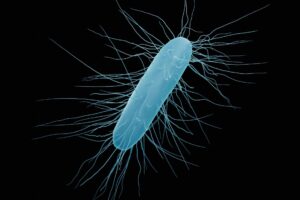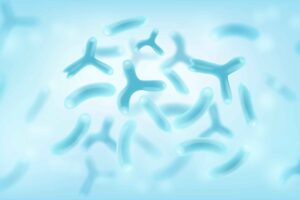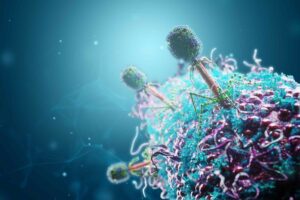Giorgia Guglielmi
Giorgia Guglielmi is a freelance science writer based in Basel, Switzerland. Specializing in life sciences, medicine, and the relationship between science and society, she has published numerous articles in outlets including Nature, Science, and Scientific American. She holds a PhD in biology from the European Molecular Biology Laboratory and a Master’s in Science Writing from the Massachusetts Institute of Technology. She has received recognition for her work, including the John Kendrew Award in 2020 and an ERC-funded FRONTIERS Media Fellowship in 2025. She has also led lectures and workshops on science communication at institutions such as Harvard University and the University of Zurich.
Neuroscience, Gastroenterology
Gut microbiota-produced bile acids can be used as therapeutic targets for multiple sclerosis.
Pneumology
Targeting E. lenta or boosting neutrophil function may lead to new treatment strategies for bronchiectasis and related lung diseases.
Gastroenterology
Nutrient competition is the main mechanism of C. difficile inhibition, hinting at the potential for targeted therapies with probiotics instead of traditional FMT.
Scientific research
Introducing more natural microbes could improve astronauts’ health.
Gastroenterology, Pediatrics
Researchers have developed new tools to better understand the role of Bifidobacterium breve, revealing its competitive growth strategies and potential for supporting the immune system.
Pneumology, Gastroenterology
Delayed microbiota maturation in infants with cystic fibrosis could contribute to disease complications, highlighting potential therapeutic targets.
Gastroenterology
Understanding the complex interactions between exercise, diet and gut health can help to develop approaches to influence the gut microbiota, boost immunity and prevent or manage gastrointestinal diseases.
Gastroenterology
Phages could be used as a drug delivery system for conditions such as inflammation and obesity.
Scientific research
Microbiota analysis could help sexual assault investigations by detecting microbial markers of contact, even in cases where traditional DNA evidence is lacking.
Gastroenterology
L-ornithine can be an additional therapy to boost the efficacy of ustekinumab in people with Crohn’s disease.











